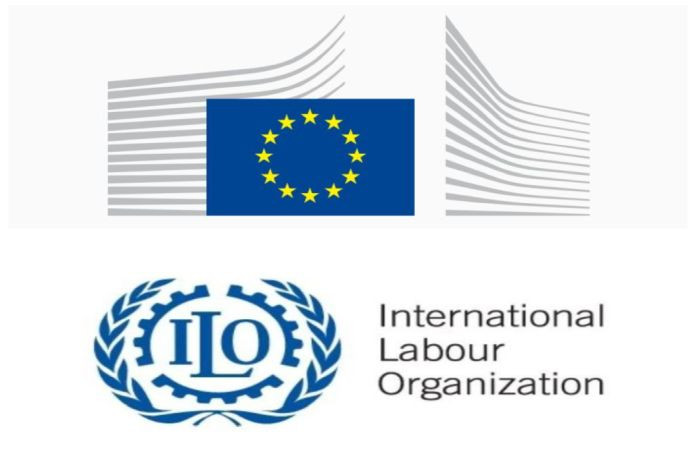GENEVA, Switzerland, (ILO News) – The ILO and the Joint Research Centre (JRC) of the European Commission have agreed to pursue new research into macro and investment policies that could create more and better jobs and forge an effective path to social justice.
The agreement between the ILO’s Employment Policy, Job Creation and Livelihoods Department, and the JRC emerged at the conclusion of a high-level symposium on employment policies for social justice, held at ILO headquarters on 11-12 May 2023.
“Good research underlies good employment policies, and good employment policies underlie the advancement of social justice,” said Sangheon Lee, director of the ILO employment policy, job creation and livelihoods department. “What this symposium has brought to the fore is that we need to re-examine current macro and investment policies to develop new and more effective ways to advance decent job creation and thereby social justice.”
Mikel Landabaso, director of the fair and sustainable economy of the European Commission’s Joint Research Centre, said: “Decent work for all is a proxy for social justice. This is why the areas of work we have opened are more relevant than ever, and we should continue to research and discuss them jointly.”
The new agreement between the JRC and ILO will build on the success of a three-year research project on “Building partnerships on the future of work ” funded by the European Union. It aims to fill policy gaps and to better communicate the findings to policymakers and other stakeholders involved in the pursuit of social justice.
Keynote speakers, experts, academics, and other stakeholders argued for change during the two-day event, expressing doubts that current macro and investment policies are sufficient to promote social justice.
“Macroeconomic policies matter, but the strength of institutions matters just as much for the creation of more and better jobs,” said keynote speaker, Rick Samans, director of the ILO research department.
Workers and Employers agreed on the need for more research and dialogue on employment policies in conjunction with social justice.
Plamen Dimitrov, president of the Confederation of Independent Trade Unions of Bulgaria CITUB) said: “The prevailing economic model does not include workers, and the ILO needs to help us to have more inclusive employment policies.”
Jerome Bellion-Jourdan, deputy secretary-general of the International Organisation of Employers (IOE) said: “Employment policies need to be seen in a wider context. The Global Coalition on social justice can provide an opportunity to connect the dots between various related issues.”





